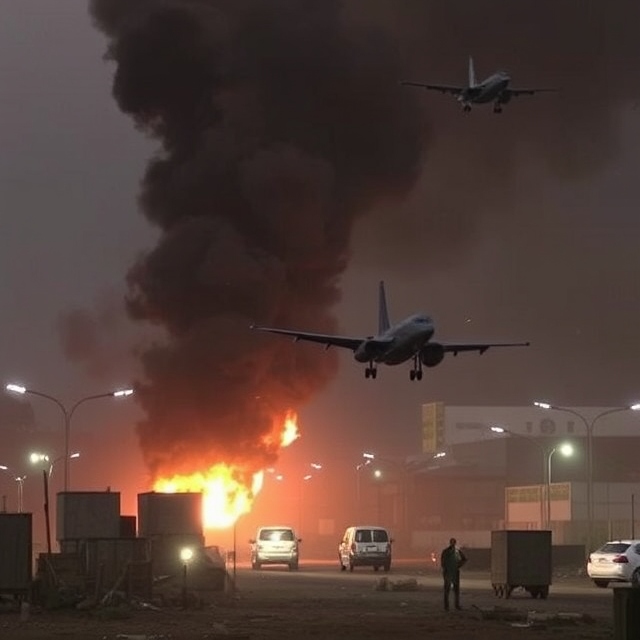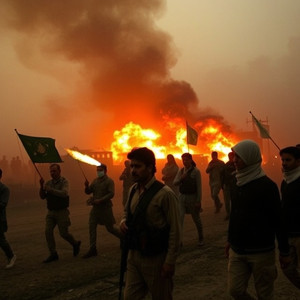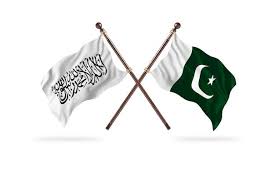
Pakistan-Taliban Tensions Escalate: Pakistan’s airstrikes on Taliban hideouts in Afghanistan’s Paktika province, causing significant civilian casualties, have intensified diplomatic and military hostilities, with the Taliban promising retaliation.
Cross-Border Insurgency Challenges: The strikes highlight Pakistan’s ongoing struggle with cross-border militancy, particularly from the TTP, which uses Afghan territory for operations, exacerbating regional instability.
Regional and Humanitarian Impact: The conflict has strained Pakistan-Afghanistan relations, increased refugee crises, and worsened regional security, with implications for neighboring India and broader geopolitics.
On December 24, 2024, Pakistan carried out a rare series of airstrikes on suspected Taliban hideouts in eastern Afghanistan’s Paktika province, causing substantial civilian casualties, including women and children. The Taliban swiftly condemned the attacks, promising retaliation, and labeled them blatant violations of Afghan sovereignty. This airstrike, one of several such strikes since March 2024, underscores the fragile and complex relationship between Pakistan and Afghanistan, fueled by a tangled web of insurgency, cross-border militancy, and diplomatic tensions.

For years, Afghanistan’s porous border with Pakistan has been a source of instability. Militants, particularly from the Tehreek-e-Taliban Pakistan (TTP), have frequently used Afghan soil to launch attacks into Pakistan, making the region a breeding ground for cross-border terrorism. The TTP, which aligns with the Afghan Taliban in its ideological pursuit to impose an Islamic order, has been a persistent thorn in Pakistan’s side, prompting Pakistan to carry out intelligence-based military operations in Afghanistan’s border regions.
The December airstrikes, however, added another layer of volatility to the already strained relationship between the two nations. According to Afghan sources, at least 46 people, mostly women and children, were killed in the Pakistani air raid. This strike particularly targeted villages in Paktika, which has witnessed growing violence due to the ongoing insurgency and the large number of refugees fleeing from Pakistan’s tribal areas. Kabul swiftly condemned the attacks, calling them an affront to international norms, and summoned Pakistan’s head of mission in Kabul to deliver a formal protest.

Despite Pakistan’s lack of official confirmation, the Pakistani military justified the airstrikes as counterterrorism measures aimed at destroying Taliban camps used by militants, including those of the Pakistani Taliban. These camps, they argue, harbor insurgents responsible for attacks on Pakistani forces within its own borders. Pakistan has long accused the Afghan Taliban of providing safe havens for these insurgents, an issue that has remained unresolved since the Taliban’s return to power in Afghanistan in 2021.
The Pakistani government faces an increasing challenge on the domestic front. Following a recent deadly TTP attack in South Waziristan, where at least 16 Pakistani soldiers were killed, the pressure on Islamabad to protect its borders from terrorism has grown. In retaliation, the Pakistani military ramped up airstrikes against insurgent hideouts, deepening the ongoing hostilities with Kabul. While Pakistan frames these actions as essential to safeguard national security, Kabul perceives them as an intrusion that disregards Afghan sovereignty.
These violent exchanges between Pakistan and Afghanistan not only threaten regional stability but also reflect a more profound diplomatic dilemma. Tensions have been steadily escalating since Pakistan began deporting millions of Afghan refugees, further inflaming diplomatic relations between the two neighbors. These actions contribute to a broader geopolitical challenge: while Pakistan contends with militancy along its western frontier, Afghanistan, now under Taliban rule, grapples with issues of state-building and security, often caught between managing internal challenges and facing external pressures.

The reality is that Pakistan and Afghanistan are locked in a tragic cycle of conflict that undermines prospects for peace and regional cooperation. Despite both governments professing the need for diplomatic and economic ties, the specter of militancy, distrust, and military retribution continues to dominate the discourse. For India, the consequences of this regional instability are significant, as both countries are strategic neighbors with implications for regional security and the broader geopolitical landscape. Pakistan’s airstrikes may be seen as an attempt to regain control over its insurgent-infested border regions, but they only serve to deepen the humanitarian crisis and prolong the state of unrest, reinforcing the sense of an escalating geopolitical game that India must watch with concern.
References:
ABC News. (2024, December 26). Pakistani air strikes on Afghanistan kill 46 people, Taliban official says. https://www.abc.net.au/news/2024-12-26/pakistani-airstrikes-on-afghanistan-kill-46-people/104763724
HT News Desk. (2024, December 25). Pakistan conducts airstrikes on Afghanistan killing 15; Taliban vow retaliation. Hindustan Times. https://www.hindustantimes.com/world-news/pakistan-conducts-airstrikes-on-afghanistan-killing-15-taliban-vows-retaliation-101735090371594.html
Shobhil Shrivastava is a postgraduate student specializing in Diplomacy, Law, and Business at O.P. Jindal Global University. His academic focus spans International Relations, Geopolitics, Defence, and Security. Views expressed are the author’s own.
